Public meetings were scheduled for Jan. 20 to discuss a proposed private landfill in the Rural Municipality of Caledonia, south of Regina. Loraas Disposal received council’s permission to investigate putting a landfill within the RM and that is far as it has gone, said reeve Mark Beck. “We met with them in the summer,” he […] Read more
Stories by Karen Briere

Company using flies as feed ingredient receives federal funding
A company producing animal feed from black soldier flies has expanded production from British Columbia into Alberta and expects to eventually build across Canada. Enterra Feed Corp. was the first company in Canada to obtain regulatory approval to use flies in animal feed ingredients. Last year it opened a $35-million, 200,000-sq. foot facility in Rocky […] Read more
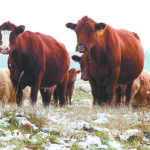
Sask. RCMP investigate cattle thefts
Moosomin RCMP are investigating the presumed theft of 35 cows and 28 calves from multiple sections of land this past fall. The cows branded with a bar over TE disappeared between October and December. Twenty-two cows were black and white, while 13 were red. The calves were not branded, but steers have green ear tags […] Read more

Ottawa, Ontario urge support of AgriStability changes
Federal agriculture minister Marie-Claude Bibeau and her Ontario counterpart have issued a statement urging all provinces to support proposed changes to AgriStability. Swift endorsement and delivery of this enhanced AgriStability program is critical,” Bibeau and Ernie Hardeman said. They said farmers face challenges from COVID-19, yet have pressed on. “While the proposed changes to AgriStability […] Read more
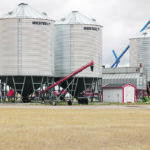
Carbon tax cost could soar to $12.52 per acre
Agricultural Producers Association of Saskatchewan’s new estimate for wheat based on Ottawa’s recent tax hike plan
Updated calculations from the Agricultural Producers Association of Saskatchewan suggest the carbon tax could cost $12.52 per acre by 2030. The estimate, for wheat, is based on the December federal government announcement that the tax would rise to $170 per tonne over the next 10 years. At $20 per tonne, in 2019, the cost to […] Read more
Number of fields infected with clubroot increases in Sask.
Clubroot appeared in 24 more Saskatchewan fields in 2020, according to the map released Jan. 11. Visible disease has now been confirmed in 75 canola fields since 2017. Also last year, the pathogen was detected in another 18 fields that didn’t have symptoms, for a total of 29. Provincial plant disease specialist Alireza Akhavan said […] Read more
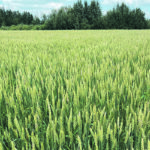
Small phosphorus applications help wheat yields
Largest yield bump occurred with 17 pounds per acre, followed by a smaller but still significant increase at 36 lb. per acre
A Saskatchewan study has found that soil severely deficient in phosphorus produced better spring wheat yields with even small phosphorus applications, but where and when it was placed weren’t factors. Erin Karppinen, co-research director at the Irrigation Crop Diversification Centre in Outlook, Sask., said the first year of a two-year study done in 2020 showed […] Read more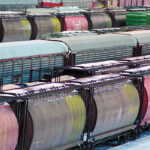
Cabinet shuffle produces new transport minister
A small cabinet shuffle in Ottawa has resulted in changes in three portfolios, including transport. Omar Alghabra is a newcomer to cabinet, although he served as parliamentary secretary to the minister of international trade diversification. First elected in 2006, he represents Mississauga Centre. While much of his focus will be on the airline industry, which […] Read more
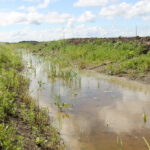
Sask. still searches for drainage enforcement
Government says it is working with landowners to achieve approvals in ‘ways that are not impactful on the environment’
Saskatchewan still hasn’t established how agricultural drainage can be mitigated to everyone’s satisfaction. The Water Security Agency consulted extensively with industry and stakeholders in 2019 on how farmers’ and environmental needs could both be met, but a mitigation policy has not yet been announced. Jeff Olson, who for years worked as a wetlands specialist with […] Read more
Sask. unveils new battery recycling plan
Saskatchewan has implemented a battery recycling program, which began Jan. 1. The 73 SARCAN collection depots, along with other designated sites, will accept single-use and rechargeable consumer batteries that weigh less than five kilograms each, excluding lead acid batteries. The program will be operated by a non-profit environmental stewardship organization called Call2Recycle Canada. It has […] Read more





